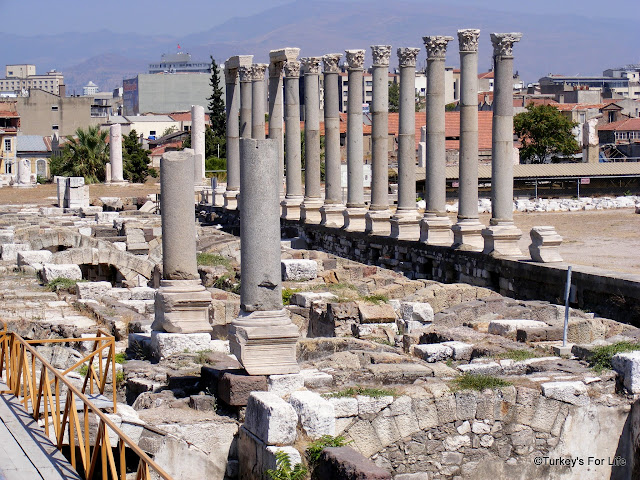18 MARCH 1915 AND THEREAFTER:
On February19 Admiral Carden began in earnest his attack on the outer defences of the Dardanelles. He had assembled 14 British and 4 French battleships with supporting crafts, including some 35 trawlers for minesweeping. After along day bombardment of the Turkish main forts at the Strait’s entrance, the Turks were still firing defiant shots. With renewal of the attack on 25 February 25, the ships continued their bombardment of the forts at the mouth of the Dardanelles. Bombardments continued until the 18th of March in every occasion. Admiral Carden had collapsed from fatigue and strain two days before on the 16th March and required medical care. He relinquished his command to Admiral de Robeck who took over the planned naval assault.
The attack took place at 11,30 am on the 18th March with 18 powerful battleships and continued more than 6 hours. Admiral de Robeck broke off the attack about 5 pm and withdrew his battered armada from the Straits. The day’s action had cost him three battleships sunk, three severely damaged and four more hit by heavy shells. Most of the rest suffered minor damage from field artillery shells. A total of 800 sailors were killed. On the Turkish side only eight of the 180-odd guns guarding the straits were affected by the intensive bombardment. About 40 troops were killed and 70 wounded.
A conference held on March 22,1915, in the de Robeck’s Flag-Ship HMS Queen Elizabeth, included admiral himself, General Hamilton (new commander) and other generals and admirals. The major decision of the conference was to continue with only a joint naval-military attack. Meanwhile, in London, both Kitchener and Churchill were horrified at the thought of the delay. (1) At the Admiralty Winston was obliged to fight for “ every officer, every man, every ship, every round of ammunitions required for Dardanelles. One day Admiral Fisher put the following not over an official letter. “ You are just eaten up with the Dardanelles and cannot think of anything else! Damn the Dardanelles! They will be our grave!” (2) At down on25 April, the British, Dominion and Allied armies landed ashore onto six different beaches on the Gallipoli Peninsula.
Relations between Admiral Fisher and Churchill had been deteriorating day by day. At last on May 15 1915 Churchill received a letter of his resignation. Fisher’s resignation was painful enough for Churchill to take, but that was not all he was suffer. The whole country turned in a terrible rage against Winston Churchill. Many people held him responsible for the thousands of lives lost at Gallipoli and demanded his removal from office. His popularity with the public reached one of the lowest points of his career. In May 1915 Churchill was forced to resign as first Lord of Admiralty. After his resignation he was asked to remain in the War Council. Then in November, the War Council was reorganized and to his acute disappointment, Churchill was excluded from the committee. Since he had been rejected as a war leader, Churchill decided to rejoin the Army as a fighting soldier. He went to France with the rank of major. He wanted to command at least a brigade but a strict order from London directed that Winston Churchill was not to get command of any unit larger than a battalion. After a month in the trenches, learning the rudiments of trench warfare, he was promoted to colonel and given command of the 6th Royal Scots Fusiliers. Six months later he left the trenches and turned to the Parliament again. (3)
DİPNOTLAR:
(1) Tim Swifte: Gallipoli The Incredible Campaign,p.29-30 (Australia,Sydney-1985)
(2) Violet Bonham, P.378
(3) Q.Reynolds,p.90-93
Dr. M. Galip Baysan

